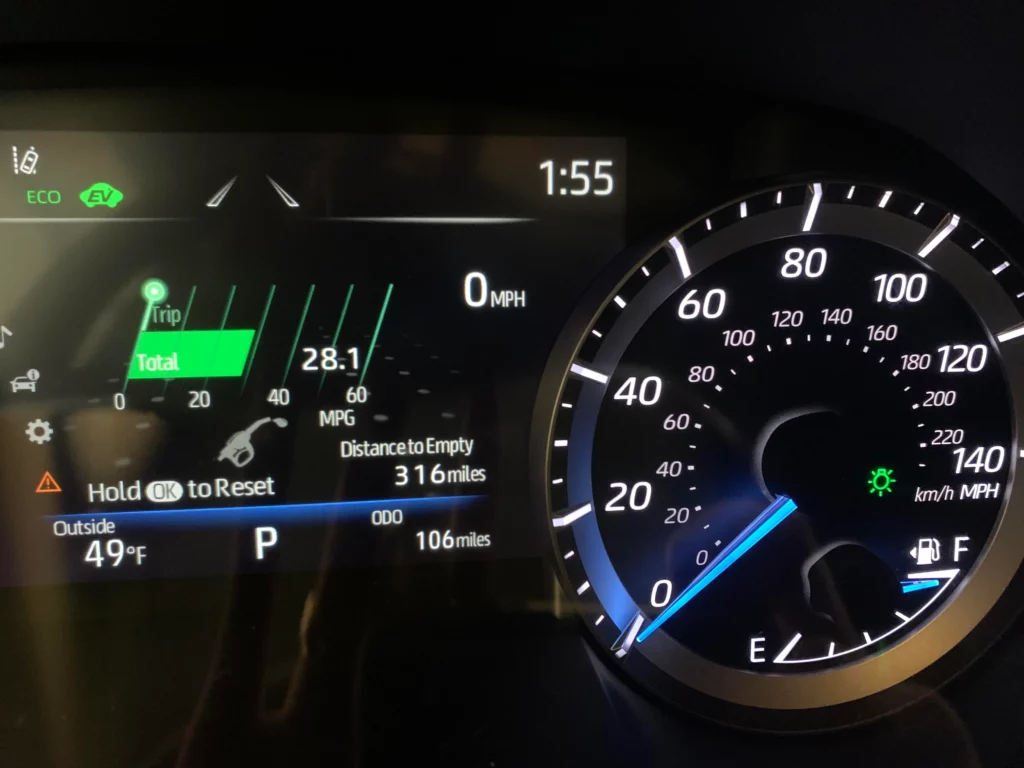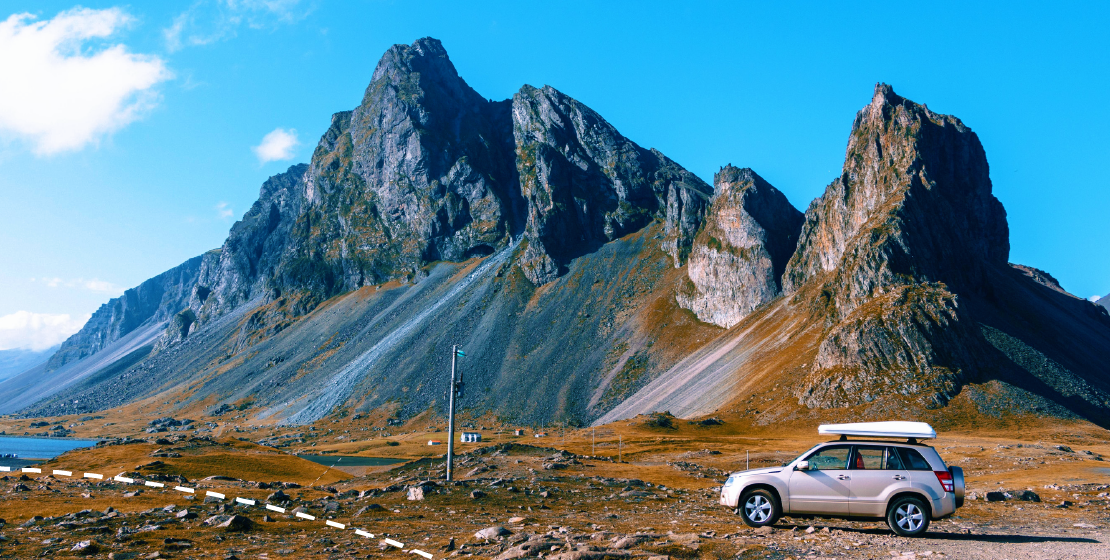Points Miles and Bling (blog) contains referral or affiliate links. The blog receives a small commission at no additional cost to you. Thank you for your continued support. Credit Card issuers are not responsible for maintaining or monitoring the accuracy of information on this website. For full details, current product information, and Terms and Conditions, click the link included.
Many rely on airport car rentals after stepping off beloved redemptions to reach their final destinations. However, have you ever wondered why the gas tank indicator sometimes starts to drop from a full tank as soon as you drive out of the airport? We will talk about this little secret in this post.
Overfilling Gas in a rental – the Magical gas indicator
If you do a Google search, you can find many discussions on how long you can drive when the empty gas light is on. I had difficulty finding posts to discuss how far you can go before the indicator started to drop down from Full. I even found an interesting Reddit where the guy said after 106 miles, his Highlander still shows a full tank after a fill-up.

Reddit: Highlander shows a full tank after 106 miles.
If you have driven a few different cars, you might know that after filling the tank, you can go a certain distance before the gas meter drops, depending on your vehicle type. I usually would not care about how much Gas I used vs. how much Gas the tank had. However, during a recent trip to Seattle, the Highlander I picked up had a predominant mileage meter. I mentally calculated how much Gas I should have filled at the gas station the night before I was returning the vehicle. Unfortunately, the gas nozzle did not stop at the number I calculated; it was off by a few gallons. I might have contributed around $10 – 20 USD to the rental company each rental in the past when not paying close attention.
Overfilling Gas in a rental – How can you tackle this issue?
It is not a lot of money, but it adds up. Even though there are other ways to maximize the value of a rental, such as getting nice upgrades, I want to ensure I am returning the same amount of fuel as at the beginning of the rental and not paying extra fuel for the big corporation.
Nowadays, cars have an indicator on milage; it may be in MPG format or L/100km (L as litres). As a good habit, always take a photo of the speedometer and the mileage indicator when you pick up your car. So you have a rough idea of the car’s starting mileage and fuel consumption. If it is a short rental, it may be worth a while to mentally plan and memorize the places you will go and how far your trips are based on the GPS result.
Do this calculation in your head:
- MPG: miles you drove / MPG consumption indicator = gallons of Gas you used.
- L/100km: kilometres you drove / 100 = litres of Gas you used.
When the time comes for you to fill up the tank, you will know approximately how much Gas you will need to add. And based on the distance between the gas station and the car return location, you can build some buffer to it.
Doing this will technically pay for the Gas you have used, and the needle will be in the position when you get the car. It should be common knowledge, but consumption can change based on our driving habits. So it may vary but should not by much.
Bottom line
If you want to save your hard-earned bucks and rent often, you might want to do some math when you rent. I hope this article helps you be more confident about your next rental. If you think your Math skills are not up for the challenge, I am sure some apps and websites can help you with calculations.
Do you have other tips and tricks to manage fuel consumption on the next rental better? Share with a comment below.
Title Image Credit: Air Canada



8 comments
Easy way to avoid calculation effort: fill up just prior to return, leave the car in accessory mode, watch the gas gauge as you fill, and stop the moment it hits registers as “full”
Good tip, I didn’t know this, and why are you telling me this after all these years?
Be careful. Many companies now use a machine that reads a chip in the car instead of using the fuel gauge. I used to rent regularly with Hertz and Avis and got suck with refueling fees because of this when renting cars with those chips. I started gassing up at the gas station outside the airport and filled until it was completely full. Voila, no refuleing charges. I would not do what you suggest because of my experience.
Good point, I was basically suggesting record what you had and you should fill up to what you used. If you ever got charged with such a fee, you could always dispute it. I mean either way, nowadays you can have to make additional interaction with the rental company either if you do not want the rental company to rip you off. I will probably start to fill up as soon I leave the airport and keep a receipt to it as you guys suggested if I am not in a rush.
Many cars fuel gauges move at about 50 miles (85 km), not 106 miles. If the previous renter filled it up completely then drove 50 miles in the hypothetical average car, then you used 8 gallons, if you refill it 8 gallons, often the needle will not be at full. You could then be charged for gas.
If the gas gauge is not full, report it and they will usually give you more than enough credit. For example, if it is 7/8, they will note to return it at 3/4. If about 7.5/8, they will say either 3/4 or 7/8.
Another way is to fill the tank at the closest station when getting the car and get a receipt.
Some cars have gas gauges that go slightly past full.
Just before returning the car, I buy gas and save the receipt. A few locations require this.
Exactly, the needle does not move for some miles. If it has 50 miles of gap, you got it “full” tank at garage but the needle started to drop few miles after you left the lot. Thats a $10 loss.
But your method is also good, but I almost always in a rush. I found if the tank was not full, it is even harder to get even with the rental company without doing a calculation.
#everdaymath. But you’ll be surprised how many ppl can’t do it. Trust me, I’m a high school teacher.
Haha thats why I am spelling it out in both units.